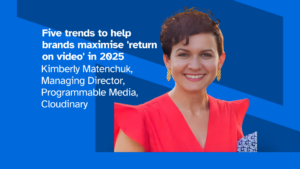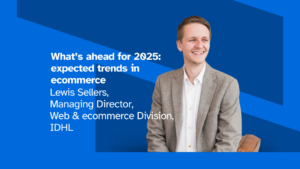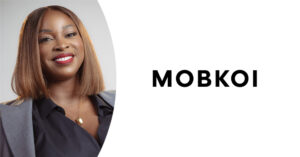by Sara Vincent, managing director, UK, Utiq
A question: where do you go for trusted news? News about what’s happening in the world, in your local area, or in a particular field, such as golf, knitting, folk music, or whatever it is you’re into? If you’re anything like me – and research suggests that in this respect, a majority of people are – you’ll turn to the open web; to websites that are, more often than not, wholly funded by advertising.
Yes, there are exceptions. The licence-funded BBC is prohibited from running ads, in the UK at least, and some large publishers like The Telegraph and the New York Times now put their content behind paywalls, though even they still supplement subscription revenues with advertising.
The fact is, the open web plays a big part in most of our lives. According to The Trade Desk, internet users spend 61% of their online time on the open web. A quick glance at my browsing history for today reveals that in order to get the facts and the data I need to give a presentation next week, and work out how to get there on time, I have visited more than 20 different sites already, many of them several times, and it’s barely lunchtime.
Why we need quality, ad-funded journalism
These sites are key to the dissemination of accurate, truthful information, written by professional journalists and funded primarily by advertising. We would face a serious threat to democracy if there were no open web and we had to rely on the platforms and walled gardens for information. We have all witnessed the rise of fake news in these unmediated, echo-chamber environments. The open web is a vital safeguard against this.
But at the same time, it’s under threat. It’s all too tempting for brands to divert budgets away from the open web and towards the perceived safety of the walled gardens. And why wouldn’t they? It’s the easy path today and brings the legacy outcomes that brands think they want. The crazy thing is that there is a disparity between where people are spending their time online and where the ad spend is flowing. As a result, many brands are greatly under-represented across some of the most affluent user environments.
It’s completely understandable why this happens. The walled gardens enable targeting of logged-in users, something publishers on the open web have found difficult to replicate at scale, relying on their own individual login strategies. If we sit and wait for users to start to understand the value exchange and begin logging into sites as a matter of course in their hundreds, then we risk the open web running out of road through lack of funding. What we should be embracing is a solution that brings some level of parity to the open web and provides a persistent robust identifier that can actually bring better outcomes for advertisers.
The difference a persistent identifier makes
If we fix this, we fix the open web, and it’s the problem Utiq is trying to address. But good tech, however scaled, reliable and privacy-safe, doesn’t solve for everything. We still need to continue to educate consumers about the value of advertising and the quality of the content it helps to fund, in order to enable publishers to continue to invest and keep advertisers and consumers coming back for more. We need to all be complicit in rebuilding user trust, so users more readily give informed consent to publishers and brands, in return for being served more relevant advertising. Couple that with a clear path to how a user can revoke that consent, simply and easily, and we are on our way to a new world of understanding and recognition of a value exchange.
The Utiq platform requires affirmative opt-in consent by a consumer to activate communications from brands via publishers. The only data shared is a pseudonymous digital token that cannot be reverse-engineered. Consumers are free to opt in or deny consent with a single click, as well as revoke any other consents given either on the brand’s or publisher’s website, or via a dedicated, easily-accessible privacy portal. The system respects user consent, and also promises to unlock the potential of the open web, which, with proper processes and tools in place, can be the perfect advertising environment in the long term.
ID solutions need to be ubiquitous to reach audiences at scale. If we can make this happen, and help fund the open web, all parties stand to benefit. Buyers gain access to persistent IDs that provide addressability at scale to reach users who aren’t logged in, as well as effective frequency capping and a 100% human audience. Publishers, meanwhile, can finally be rewarded appropriately for the quality content they curate.
And consumers, who are able to give and revoke their consent freely, are much more likely to put their trust in the brands and publishers with whom they interact. As an added bonus, they will continue to be able to access quality content and journalism from their favourite, trusted websites, without paying for the privilege. You might call it a win-win-win-win.









